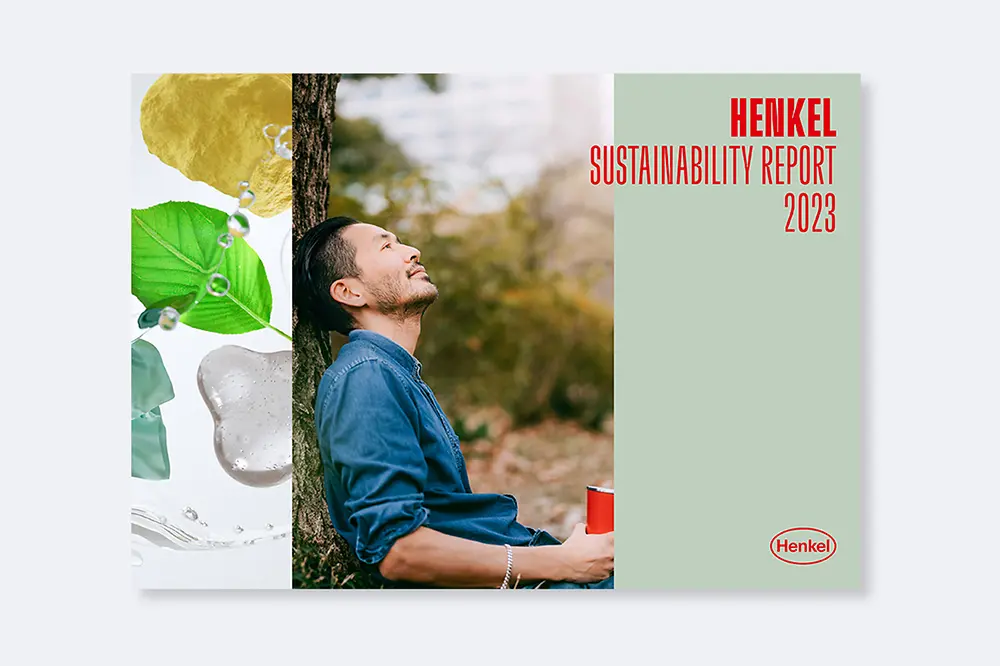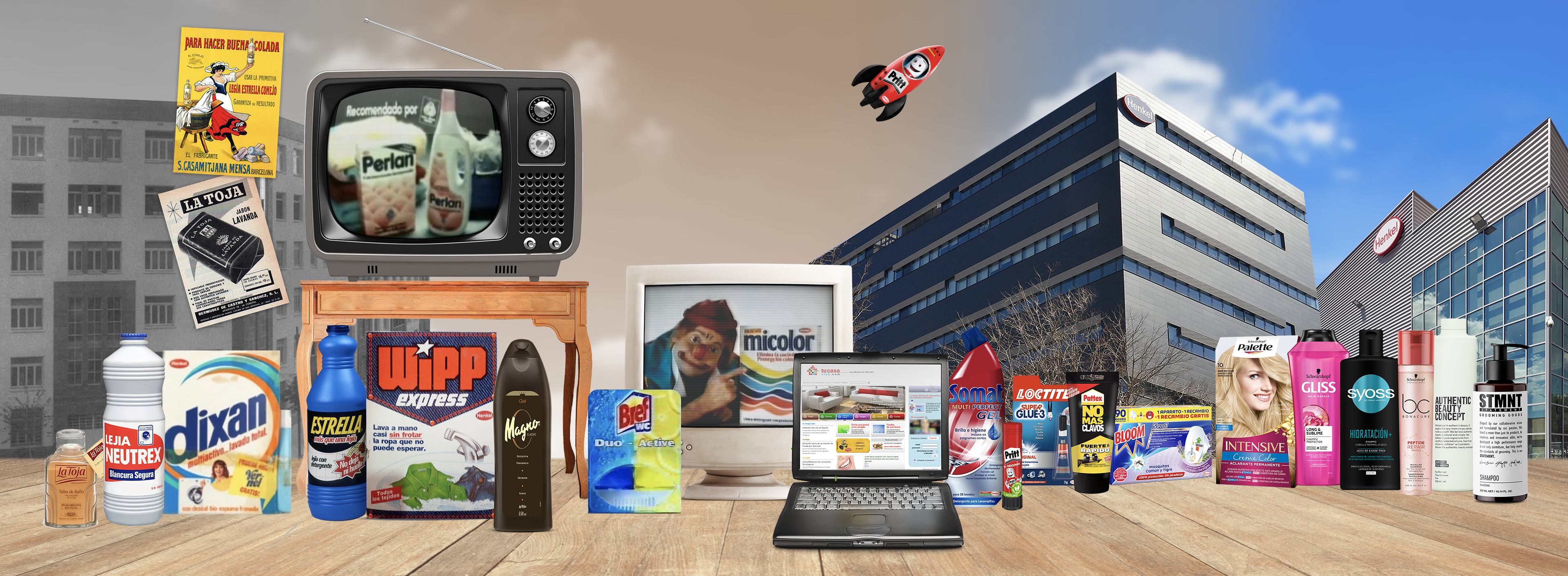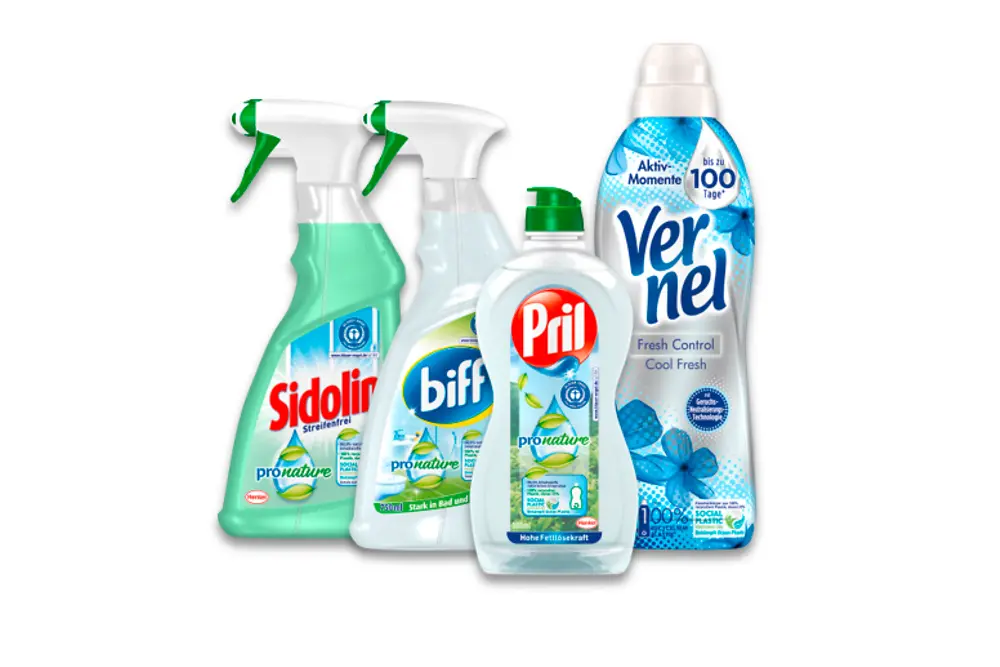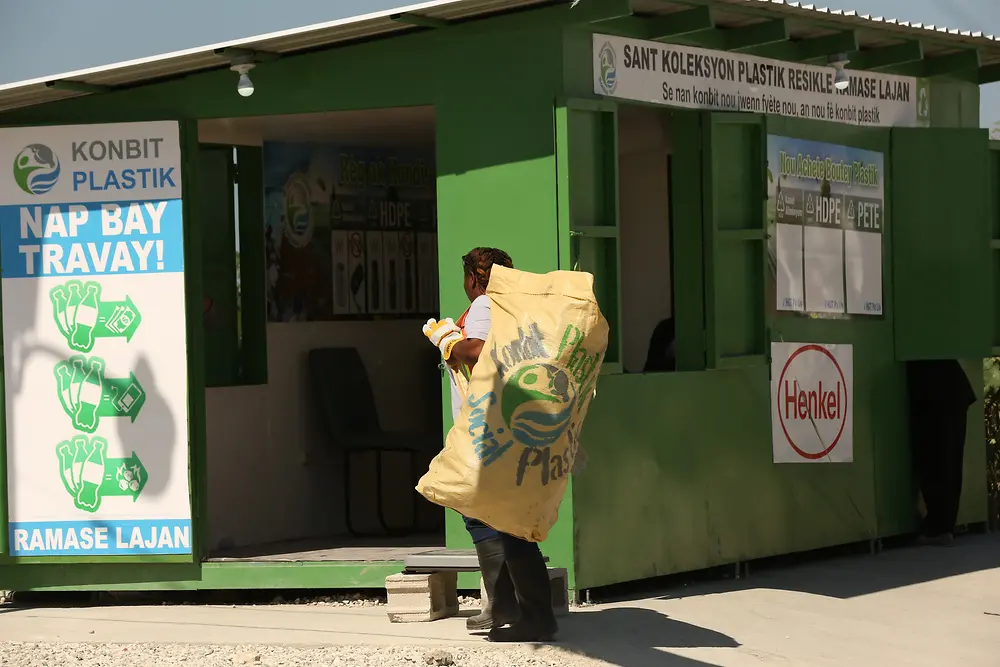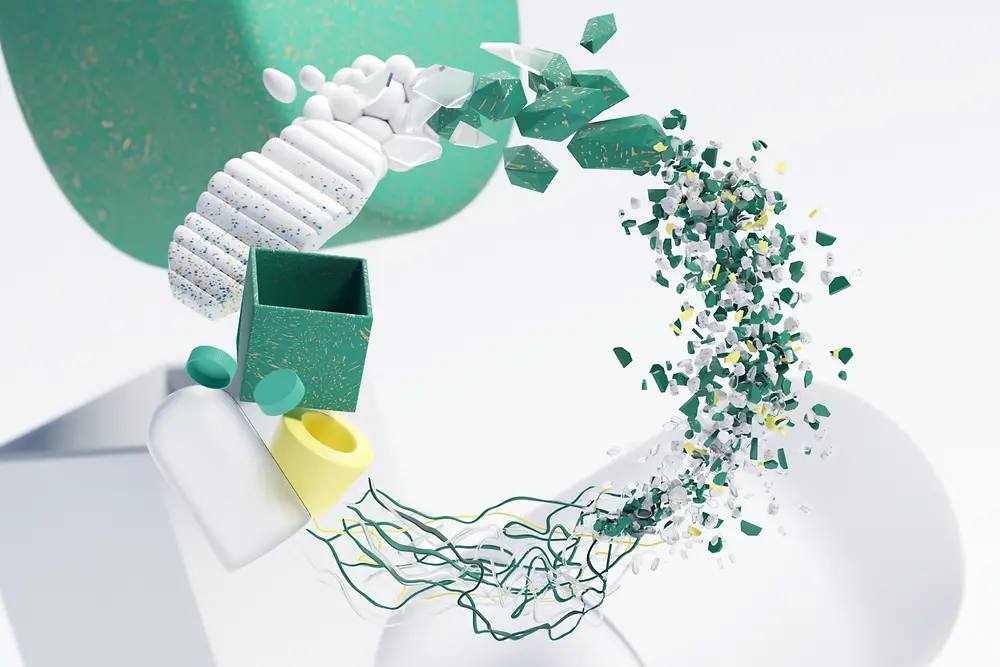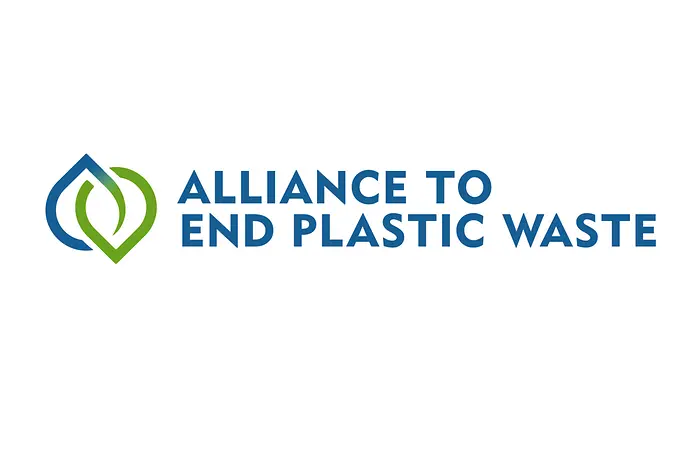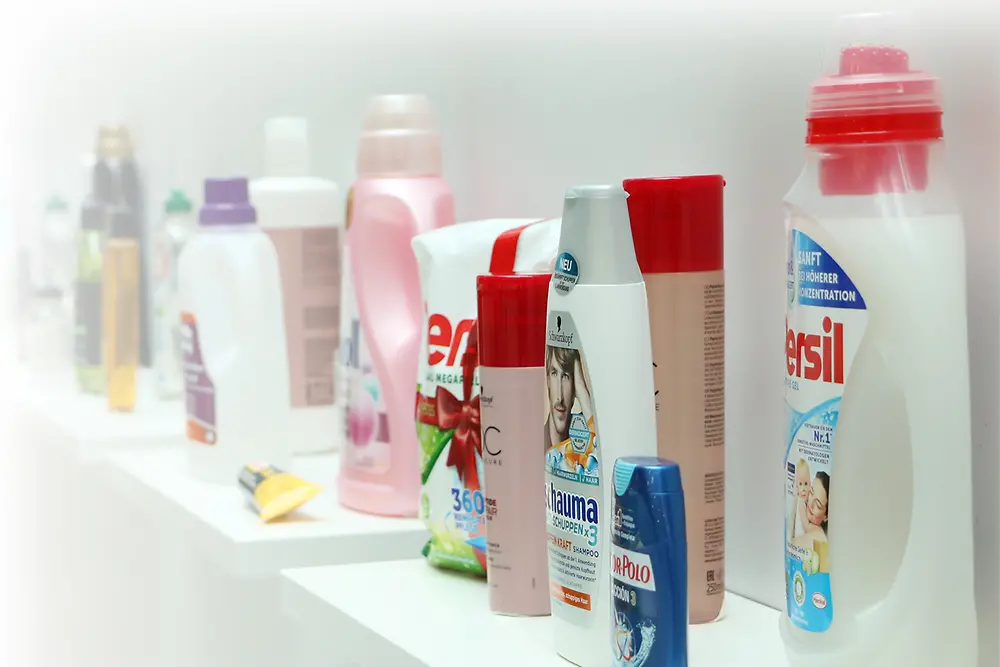Descubre las marcas de nuestras unidades de negocio: Adhesive Technologies y Consumer Brands.
29 abr. 2019 Düsseldorf / Germany
Henkel integrates Social Plastic® in packaging for Beauty Care and Laundry & Home Care products
- Social Plastic contributes to a circular economy
- Joint commitment to reduce plastic waste in the oceans and improve living conditions for people in poverty
- Bottles made of 100 percent recycled plastic incl. Social Plastic for products under the Vernel brand and Pro Nature range (from summer 2019 onwards) as well as special editions from Nature Box and Fa (launch in June 2019)
Henkel is taking the next step in its collaboration with social enterprise Plastic Bank: The consumer business units Laundry & Home Care and Beauty Care will launch product packaging made of 100 percent recycled plastic. Up to 50 percent thereof will be Social Plastic – plastic collected before it enters oceans or waterways. This underlines Henkel’s commitment to a circular value chain for plastic while at the same time providing opportunities for people in poverty.
Solution for plastic waste and poverty
Henkel has been partnering with Plastic Bank since 2017. The joint goal: reduce plastic waste in the oceans while improving the lives of people in poverty – especially in countries that lack waste management infrastructure. With the help of Henkel, Plastic Bank opened three additional plastic collection branches in Haiti, one of the poorest countries in the world. The local population can return collected plastic waste and exchange it for money, goods, or services. This material, called Social Plastic, is then integrated back into the plastic value chain.
Social Plastic successfully integrated in Henkel packaging
After successful pilot projects, Henkel is now moving further and integrating Social Plastic in various product packaging:
- From July onwards, in Germany all PET bottle bodies of the Pro Nature cleaning products under the Biff, Pril and Sidolin brands, as well as the bottle bodies for fabric finisher Vernel Fresh Control, will be made of 100 percent recycled plastics – of which 25 percent will be Social Plastic.
- Moreover, in June, Beauty Care will launch two special editions of shampoo and shower gel in Germany: The bottle bodies of “Meeres Glück” from Nature Box and “Meeres Liebe” from Fa will be made of 100 percent recycled plastic – of which 50 percent will be Social Plastic.
“In total, around 200 tons of collected Social Plastic will be processed for Henkel in the year 2019 – this plastic will not end up in the ocean,” says Thomas Müller-Kirschbaum, Co-Chair of Henkel’s Sustainability Council and Head of R&D Laundry & Home Care. “By integrating Social Plastic in our packaging on a long-term basis we are underlining our commitment to contribute to a circular economy and providing a long-term perspective for people in Haiti simultaneously.”
“We are looking forward to consistently and successfully integrating sustainability with the upcoming product launches for Fa and Nature Box and to tackle – together with Plastic Bank – the global issue of Ocean Plastic,” says Saskia Schmaus, Corporate Director International of Henkel Beauty Care.
“Plastic Bank creates a value chain that contributes to a better world. Our partnership with Henkel is a good example of what can be achieved by joining forces,” said David Katz, CEO of Plastic Bank. “Together we can create true added value by tackling the waste problem in a holistic approach while at the same time helping the world's poorest people.”
Contribution to Henkel’s packaging strategy and targets
The launches of product packaging with Social Plastic is just another example of how Henkel is pursuing its targets for sustainable packaging. The company has set itself the goal to increase the share of recycled plastics in the packaging of its consumer products in Europe to 35 percent by 2025, and it is expanding its packaging lines made of 100 percent recycled plastics. Additionally, by 2025, all of Henkel’s packaging will be recyclable, reusable or compostable*.
More information on Henkel’s packaging strategy and targets can be found at
www.henkel.com/sustainability/positions/packaging.
* excluding adhesive products where residue may affect recyclability
